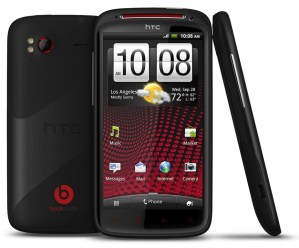
The fights are far from over, but so far two of the epic intellectual property battles targeting Apple’s wildly successful iPhone and iPod lines are failing to cause much damage. First, the U.S. International Trade Commission has issued a initial judgment that Apple’s iPhone, iPad, and iPod product lines do not violate four HTC patents related to phone dialing and power management. Second, a Dutch court has turned down Samsung’s bid to ban sales of Apple products that use 3G technology in the Netherlands, finding that Samsung’s patents are covered by standards agreements that make them open to licensing on fair, reasonable, and non-discriminatory (FRAND) terms.
In the HTC case, the ITC judge found HTC’s patents are valid, but that Apple’s products contain “no violation.” The decision is preliminary, with the full ITC scheduled to rule on the case in February. HTC has indicated it plans to vigorously appeal the decision. The text of the decision (as well as analysis) is available from Florian Mueller’s FOSS Patents blog; the announcement hasn’t been posted yet by the ITC.
The HTC case goes back to early 2010, when Apple first sued HTC arguing the company was infringing on some 20 patents related to the iPhone. A few months later, HTC countersued, arguing iPhone, iPad, and iPod products violated HTC patents and should be barred from sale in the United States. That suit was HTC’s first retaliation against Apple; it has since added on additional complaints, claiming Apple also violates three additional patents, as well as patents HTC recently acquired from Google. Apple has, in turn, filed new infringement suits over the HTC Flyer table and Droid phones, and in July the ITC issued a ruling that HTC does infringe on two Apple patents. The battle between Apple and HTC is largely viewed as a proxy fight over Android: if Apple wins critical victories against HTC, it will likely be able to impose them against large portions of the Android ecosystem. Hence, HTC has been getting support from Google in the battle.
Meanwhile, the epic battle between Samsung and Apple—which now spans at least four continents and two dozen lawsuits—took another turn against Samsung last week: a Dutch court ruled against Samsung’s request that Apple products with 3G technology be banned from import into the Netherlands. Samsung had argued Apple did not have valid licenses to 3G technologies in the devices, but the court ruled that the Samsung patents in question are subject to fair, reasonable, and non-discriminatory (FRAND) licensing terms as part of technology standards and, essentially, that Samsung isn’t able to yank the patents out from under Apple just because they have a successful product using the technology. The ruling could be important for similar cases Samsung has lodged against Apple in France and Italy.
Samsung has also taken a hit in its litigation against Apple in the United States, where a judge ruled last week Samsung tablets infringe on Apple patents. However, that judge stopped short of banning Samsung Galaxy Tab sales in the U.S., saying Apple must first demonstrate its patents are valid before a sales ban can be considered. That defeat came on the heels of the same Samsung tablets being barred from sale in Australia—again, for violating Apple patents.
Both patent battles are likely to continue for some time, with the companies elbowing for position before they’re finally forced to go to court—or actually agree to a settlement. Overall, despite a series of setbacks Samsung seems to be in the best position to wrangle a settlement out of Apple: the company has a much deeper patent portfolio of its own, and remains a key supplier to Apple. HTC, on the other hand, doesn’t have much it can use as leverage against Apple, despite having its position bolstered with patent acquisitions from S3 Graphics and Google itself. And the preliminary ITC ruling just makes HTC’s negotiating position against Apple that much weaker.
Editors' Recommendations
- Best Apple deals: Save on AirPods, Apple Watch, iPad, MacBook
- Apple is about to do the unthinkable to its iPads
- Nomad’s new iPhone case and Apple Watch band may be its coolest yet
- 5 phones you should buy instead of the iPhone 15
- Here’s how Apple could change your iPhone forever


